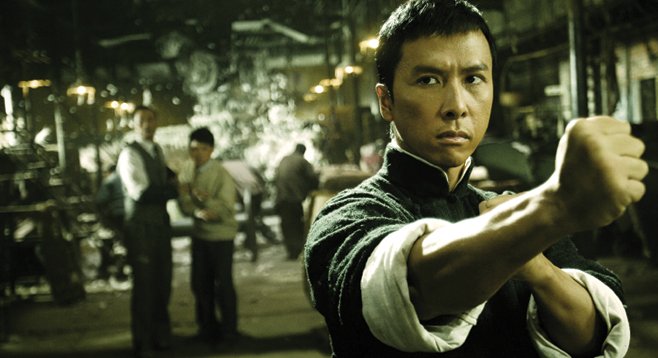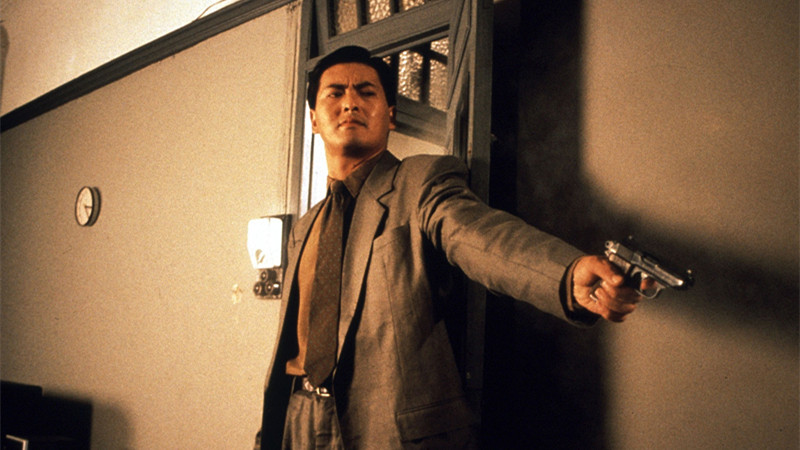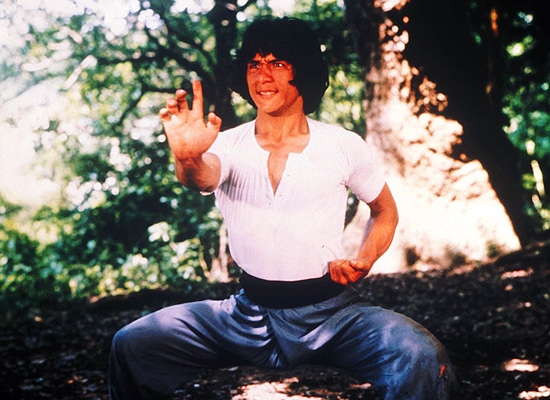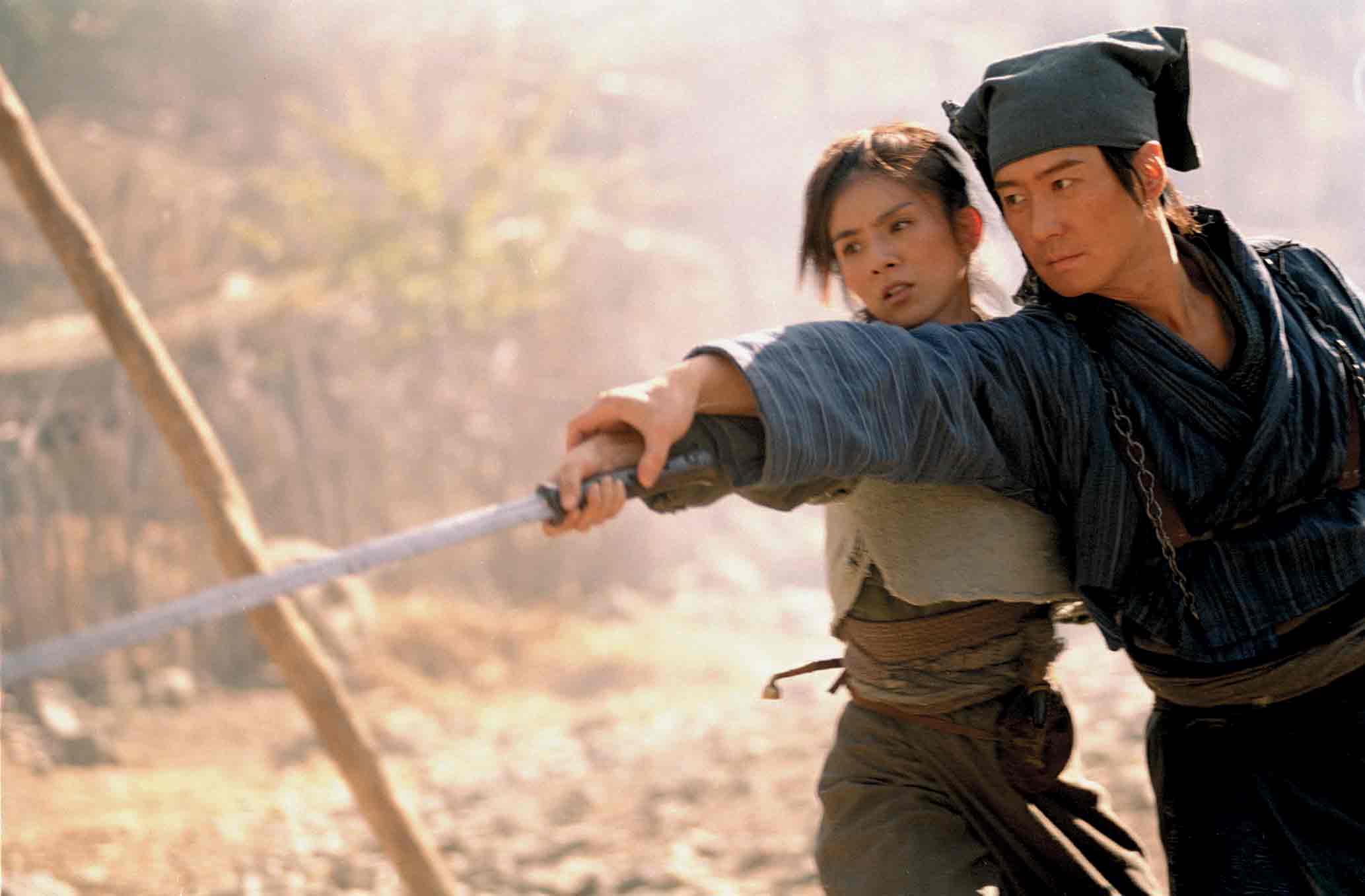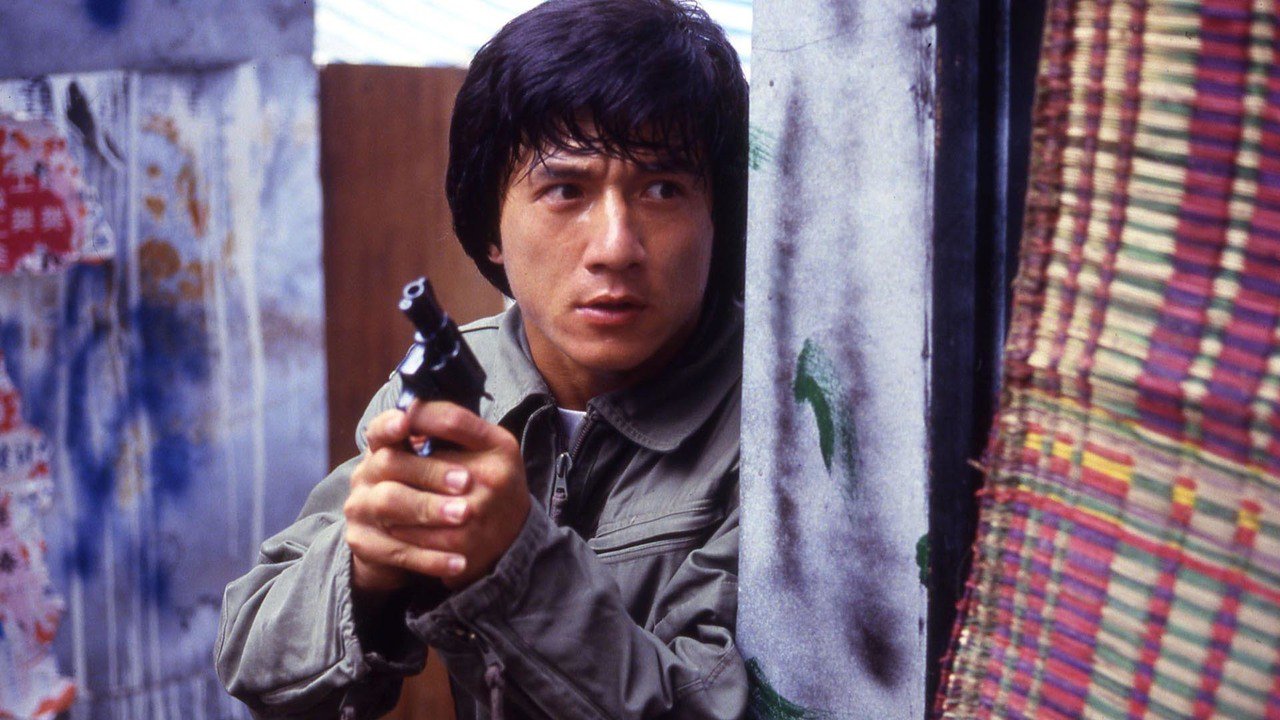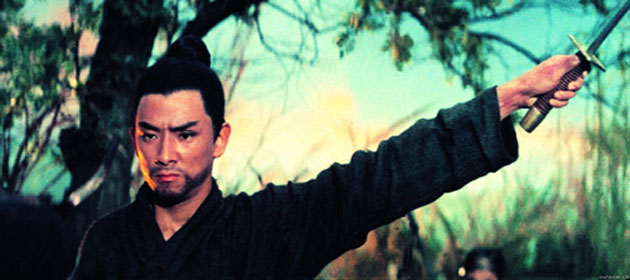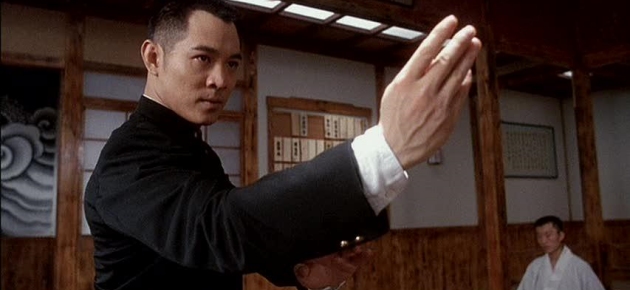8. Ip Man (Wilson Yip, 2008)
The surge of movies concerning Bruce Lee’s teacher, and ambassador of Wing Chun style to the world, initiated with this particular film.
The film takes place in Foshan, a city in southeast China that was considered as a centre of martial arts. Ip Man enjoys the appreciation of the other teachers in the city, who consider him the strongest fighter, a point proven in a number of battles. Additionally, Ip Man lives an opulent life while keeping a low profile.
However, after the Japanese invasion of 1937, the situation for all Chinese people deteriorates radically, resulting in Ip Man having to work as a miner to feed his family and duel with Chinese and Japanese fighters to protect his friends.
Although not historically accurate, the film succeeded in realistically portraying both of the eras in the story.
Sammo Hung and Tony Leung, two of the most prominent members of Hong Kong action cinema, designed and choreographed the action scenes. Considering that Donnie Yen, who is largely considered as the best actual fighter amongst the many actors of the genre, held the leading role, the result was unavoidably majestic.
Additionally splendid in their roles are Fan Siu Wong, who plays the initial rival of Ip Man, and Hiroyuki Ikeuchi, who played a Japanese general and karate expert. Both of Donnie Yen’s fights with the aforementioned are utterly impressive.
9. The Killer (John Woo, 1989)
If “A Better Tomorrow” initiated the careers of John Woo and Chow Yun-fat, this particular one launched them into global stardom, since it was the most commercially successful film coming out of Hong Kong since “Enter the Dragon”. However, it was almost never shot, due to the continuing dispute between the director and the producer, Tsui Hark. Eventually, Chow Yun-fat and the other protagonist, Danny Lee, were forced to pay from their pockets in order to complete it.
Ah Jong is a hired assassin, who, during his latest “work”, accidentally hurts a nightclub singer in the eye. Although he had decided to quit, he takes on one last job, in order to raise money to reimburse the girl.
John Woo entails in “The Killer”, all of his trademarks as a filmmaker: slow motion, impressive gun shooting scenes, stylized camera shots, and the ineluctable flying of pigeons.
Furthermore, Woo wanted to present a number of social issues, including religion, friendship and love; however, he does it epidermically, since the movie is obviously focused on the driving action. Chow Yun-fat is as smooth as ever, while he responds completely to the persona that made him famous.
“The Killer” won the best director and best editing categories at the 1990 Hong Kong Film Awards, while major filmmakers Quentin Tarantino, Robert Rodriguez, Johnnie To and Luc Besson include it in their influences.
10. Drunken Master (Woo Ping Yuen, 1978)
Jackie Chan, who was already considered the successor of Bruce Lee, presents in this specific movie all of the distinct characteristics that made his movies so special.
As Jet Li in “Once Upon a Time in China”, he portrays the Chinese folk hero Wong Fei Hung; however, the two films have little in common. Fei Hung is the son of a famous kung fu teacher; nevertheless, he never stops getting into trouble due to fighting, constantly infuriating his father. When an incident involves his aunt and cousin, his father decides to send him to train with Su Hua Chi aka. Beggar So, another common character of Cantonese martial folklore, who was famous for his drunken style of kung fu.
The training is rigorous to a point of excruciating pain for Fei Hung, which leads to him escaping from the elderly man’s grasp. However, after a humiliating defeat from the notorious assassin Yim Tim Sam aka. Thunderfoot, he decides to return to the beggar and continue his training in the secret style called “The Eight Drunken Immortals”.
Jackie Chan’s personal style, a combination of elaborate martial arts scenes and slapstick humor, is evident here from beginning to conclusion. The majority of the fights are similar to comic sketches, differentiating from the usual style of the genre at the time that had become owlish and pretentious, chiefly due to their scripts.
Yuen Woo Ping, who is also mentioned in “Once Upon a Time in China 2” as martial arts choreographer, debuted as a director in “Drunken Master”. However, he did not neglect his former capacity, designing a plethora of sublime fighting scenes. His father, Simon Yuen, portrays Beggar So and Wong Chen Lee, who was famous in Hong Kong for his distinct kicking style, Thunderfoot. Both of the scenes where he and Jackie Chan are fighting are utterly memorable.
11. 7 Swords (Tsui Hark, 2005)
This specific title marked the long anticipated return of Tsui Hark to the genre, after the largely disappointing “Black Mask 2” and “Zu Warriors”, which were criticized for the excessive usage of special effects.
During the rule of Qing Dynasty, a regulation was passed that forbade common people from learning martial arts. Fire-Wind, a paranoid general, and his team of soldiers assist the government in imposing the recent law; however, he ends up ravaging northern China, killing fighters along with civilians. A team of seven masters of the sword tries to prevent his tactics and additionally to protect Martial Village, which is the general’s latest target.
Hark created a thick storyline in the film, but he presented it in a disconnected way, thus resulting in the movie being quite confusing at times. Nevertheless, the other aspects of the film are excellent. Hark uses a slow pace, guiding the story steadily and with lyricism towards the spectacular finale. This is largely evident in the action scenes that improve as the story unfolds, reaching their zenith in the final, thunderous 15 minutes.
The action choreography won the category at the Golden Horse Awards and Donnie Yen, as usual, is sublime in the role of one of the seven swords.
12. Police Story (Jackie Chan, 1985)
Jackie Chan directed, wrote the script and starred in one of the finest specimens of the genre, which he considers to be his best action film. Furthermore, “Police Story” won, both Best Action Choreography and Best Picture at the Hong Kong Film Awards, a rare accomplishment from a film of this category.
Kevin Chan is a celebrated police officer, because he managed to arrest crime lord Chor Yuen. The basic witness in the upcoming trial is Yuen’s secretary, Selina, and Chan’s latest mission is protecting her from Yuen’s people.
However, on the day of the trial she disappears and the crime boss is set free. Subsequently, a conspiracy is weaved against Chan that results in him facing murder charges.
The script is evidently simplistic; nevertheless, the action scenes are a few of the utmost intricate and dangerous ever presented in a film. The proof is in the injuries Jackie Chan and the rest of the stuntmen crew sustained, which resulted in him having to introduce his own that would stay with him throughout his prolific career. Chiefly among them are the shopping mall fight and the scene with the bus chase.
The other distinct feature of Jackie Chan’s filmography, comedy, is also present and finely handled. It is primarily delineated by the relationship with Chan’s girlfriend, played by Maggie Cheung, who in her earliest works played jealous and pouted. The humorous moments occur when Chan tries to comfort her amidst all the action.
The film was a colossal success in East Asia, thus resulting in five sequels, the last of which was screened in 2013.
13. One-Armed Swordsman (Cheh Chang, 1967)
Unavoidably, Shaw Brothers could not be left off this list, since they are likely responsible for the birth of this genre. This particular movie was produced during their most dominant period in the 60s, when they controlled 35 companies, 130 cinemas, nine entertainment parks and three studios.
Furthermore, “One-Armed Swordsman” introduced the concept of the anti-hero, which additionally entailed intense swordplay and heavy bloodletting. Finally, the film was the first to reach the mark of HK $1 million at the local box office, singlehandedly making a star out of his protagonist, Jimmy Wang.
Fang Kang’s father dies trying to protect the master of the Golden Sword kung fu school during an attack. To honor his sacrifice, Qi Ru Feng decides to raise and train the boy. Years pass and Fang Kang has become one of the top students in the school; however, he is the object of scorn by his classmates due to his low origins, thus resulting in him abandoning the institution.
Eventually, he confronts a gang headed by Master Qi’s daughter, Pei-Er, who in the following battle cunningly manages to cut off his arm. Later in the story, the injured Fang Kang is nursed by a farm girl, Hsia Man, who subsequently provides him with a kung fu manual, with techniques for one-handed fighters.
Jimmy Wang was evidently not of the same caliber as the master fighters Bruce Lee or Jackie Chan; nevertheless, due to Chen Chang’s techniques, he managed to appear ferocious and extremely skillful with the sword. Besides the impressive hacking and slashing action, the director also entailed a number of social issues, including loyalty, forgiveness, and even a little romance.
The film spawned two sequels, a remake by Tsui Hark, a crossover with Zatoichi and innumerable imitations, in one of the genres most influential pictures.
14. Fist of Legend (Gordon Chan, 1994)
A remake of the 1972 Bruce Lee film, “Fist of Fury”, this particular movie features the popular folk hero Chen Zhen and is considered one of the most accomplished titles of both the protagonist, Jet Li, and the action choreographer, Yuen Woo Ping.
Chen Zhen, who studies in Japan, learns that Akutagawa, a Japanese fighter, has killed his former master in a duel. Heart-stricken, he returns to China and after his own bout with the Japanese, he eventually discovers that his master’s fight involved foul play. Eager to punish the Japanese, who scheme against the Chinese martial artists, he proceeds in relentlessly fighting hordes of them.
“Fist of Legend” is an archetype of the Hong Kong action genre. It includes the popular Chinese versus Japanese concept and the direction, script and acting exist solely to lead to the action scenes. The aforementioned, however, designed and executed them to perfection, thus resulting in a masterpiece of the category. Also of note is the fact that, although the violence is excessive, the film does not show much blood, in contrast to the regular tactics.
15. Dragon (Peter Chan, 2011)
Peter Chan is one of the most successful directors and producers in Hong Kong, China and Taiwan, whose works have been greatly rewarding both financially and artistically, netting a plethora of awards from festivals all over the world. This particular one reinvigorated the genre, which had been in a stalemate for a number of years.
Liu, a former martial arts master, lives a quiet life in a village with his wife and two sons, having left his past behind. However, during an incident with two criminals trying to rob a shop he was attending, he ends up killing both of them. Thus, he attracts the interest of detective Xu, who investigates the case. A bit later, his fame rises due to the incident and the Master, the leader of the 72 Demons, sends his men to capture him. The resonance between the three men leads to violent incidents.
Peter Chan distanced himself from the usual, nonstop action of the genre, thus resulting in shooting a film, which is equal parts thriller and action film. Additionally, the three major action scenes are sublime, chiefly because they are incorporated in the script, serving the story instead of the other way around, which is the common practice.
Furthermore, another original aspect was the depiction of the damage the human body sustains from the various hits, in an X-ray sort of way with computer graphics.
All three of the protagonists, Donnie Yen as Liu, who is also responsible for the action choreography, Takeshi Kaneshiro as Detective Xu, and Yu Wang as The Master, are excellent in their respective roles.
Author Bio: Panos Kotzathanasis is a film critic who focuses on the cinema of East Asia. He enjoys films from all genres, although he is a big fan of exploitation. You can follow him on Facebook or Twitter.
